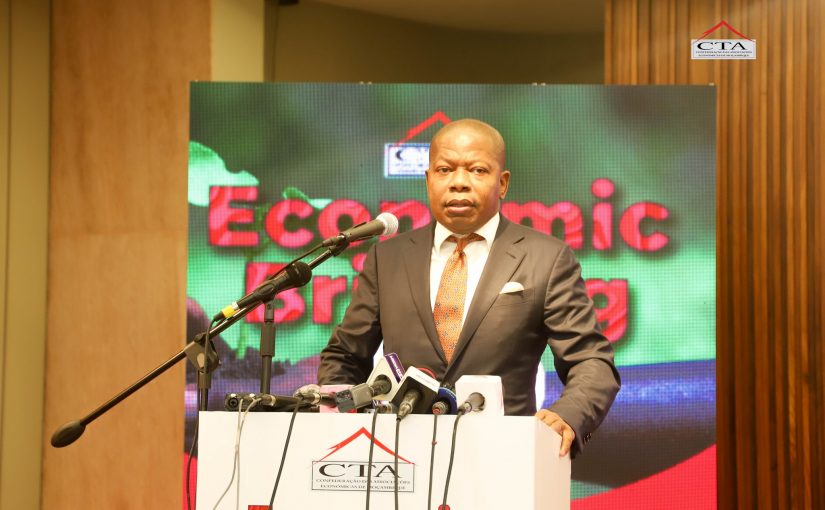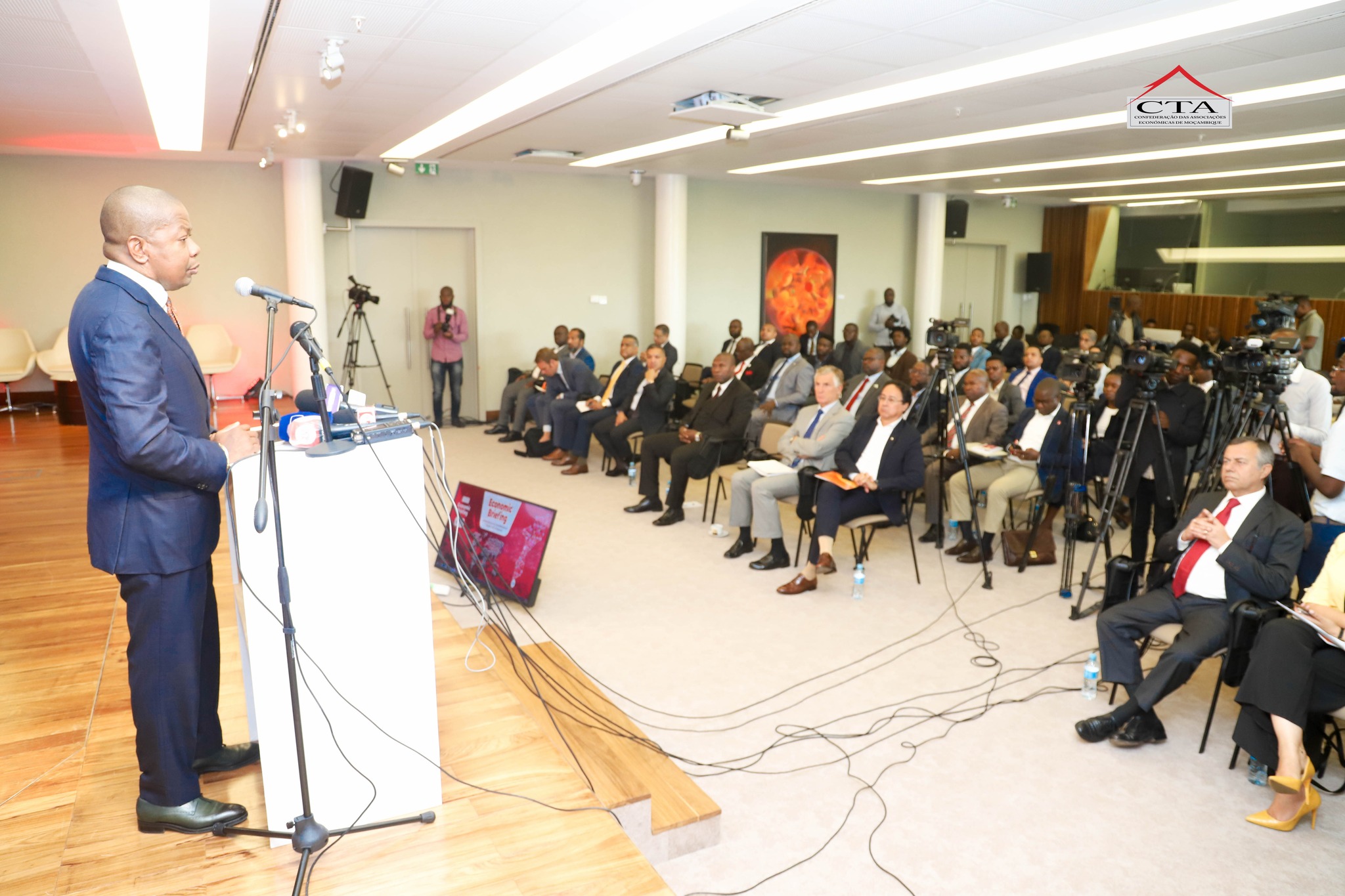Mozambique: New FDEL development fund "innovative"; will decentralise investment, impact job ...
Mozambique: Business activity registers slight improvement in Q3

Photo: CTA
The ninth edition of the Business Confidence index, presented by the Confederation of Economic Associations (CTA) in Maputo yesterday (02-11), showed a movement from 28% in the second quarter to 29% in the third quarter of this year.
“The main drivers of this increase were: (i) the peak of the agricultural marketing season; (ii) the recovery of the transport sector following the tariff adjustments; (iii) and the continuous recovery of the tourism sector,” CTA president Agostinho Vuma revealed at the tenth edition of the body’s Economic Briefing..
Vuma explained that “this performance was not more pronounced due to the impacts of the rise in fuel prices, the lower-than-expected production in the fisheries sector (due to the low operationalization of the fleet, taking into account the high operational costs and the meagre catches), and even a certain retraction in demand due to the rising cost of living”.
As for the employment index, Vuma said that “it stood at 116,7, in the quarter under analysis, denoting a preference for hiring temporary or part-time labour, mainly in the agriculture sector”.
“The outlook is to maintain the trend of growth in business performance until the end of the year,” he said. “However, the increase in the cost of financing, the maintenance of inflationary pressures and the situation of instability in the province of Cabo Delgado may condition the desired dynamism in business activity.”
Monetary policy measures
The central bank’s monetary policy measures did not go unnoticed by the private sector, with the president of the CTA advocating a more reserved attitude from the Financial Regulator in order not to compromise the balance sheets of national companies.
“The current scenario, characterised by the tightening of financing conditions to face the rise in prices, requires us to reflect on the magnitude of tolerance for inflation, vis-a-vis the creation of conditions to boost business performance,” Vuma, explained.
“We recognize the work that the monetary authority has done to ensure exchange rate stability, but we advocate that it should have a more reserved attitude in the adjustments it has made to the market’s key interest rates,” the director of the CTA warned.
“For example, the prime rate, which in January was 18.6%, this month was set at 22.5%, that is, an increase of four percentage points. Imagine the effort of micro, small and medium-sized companies to honour their commitments with the banking system,” he concluded.















Leave a Reply
Be the First to Comment!
You must be logged in to post a comment.
You must be logged in to post a comment.